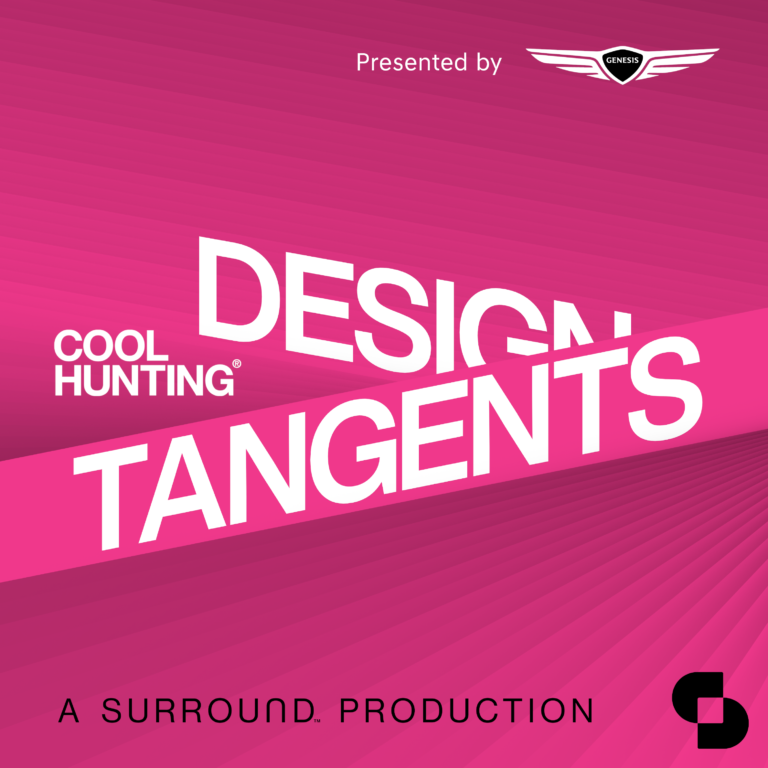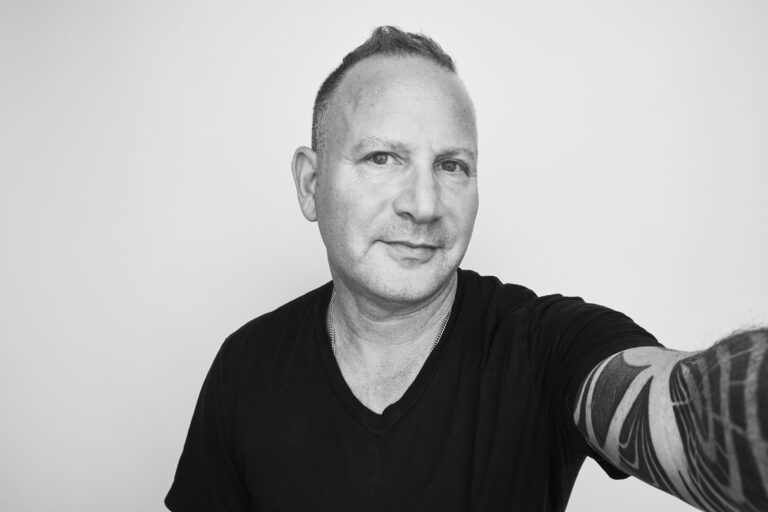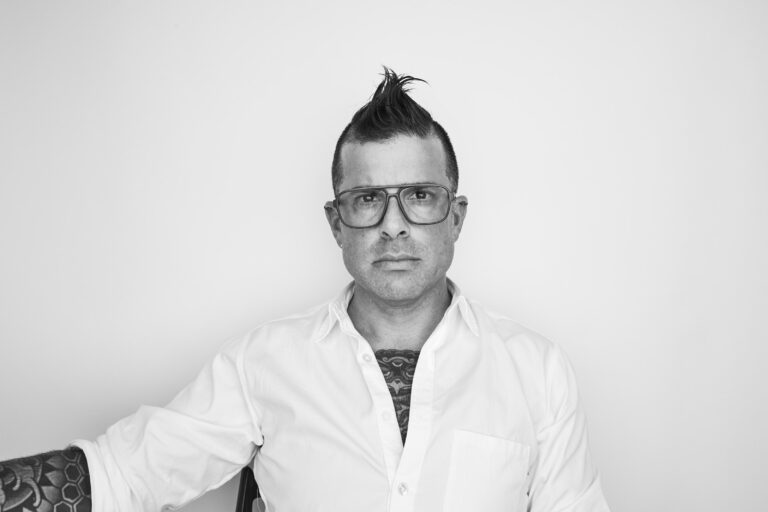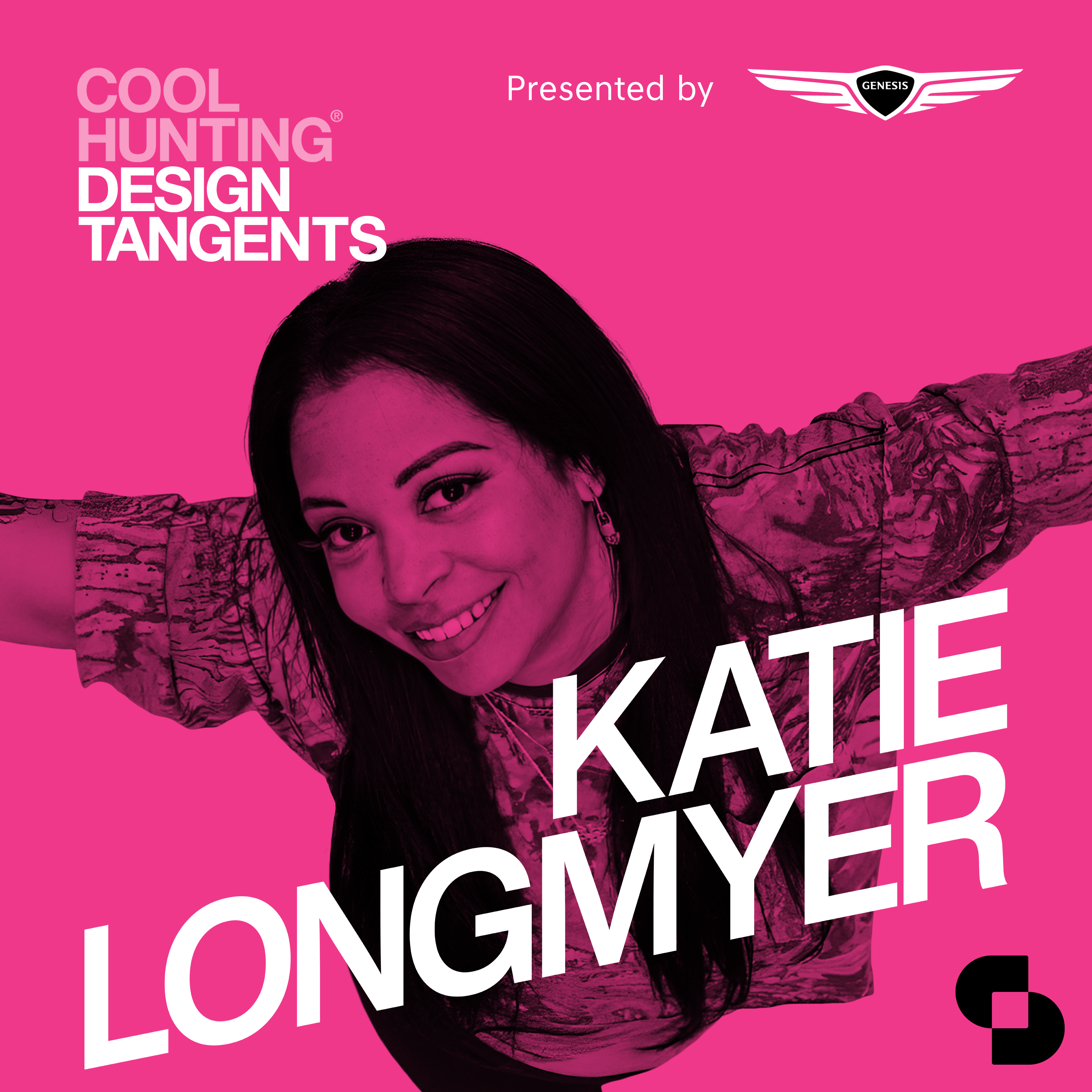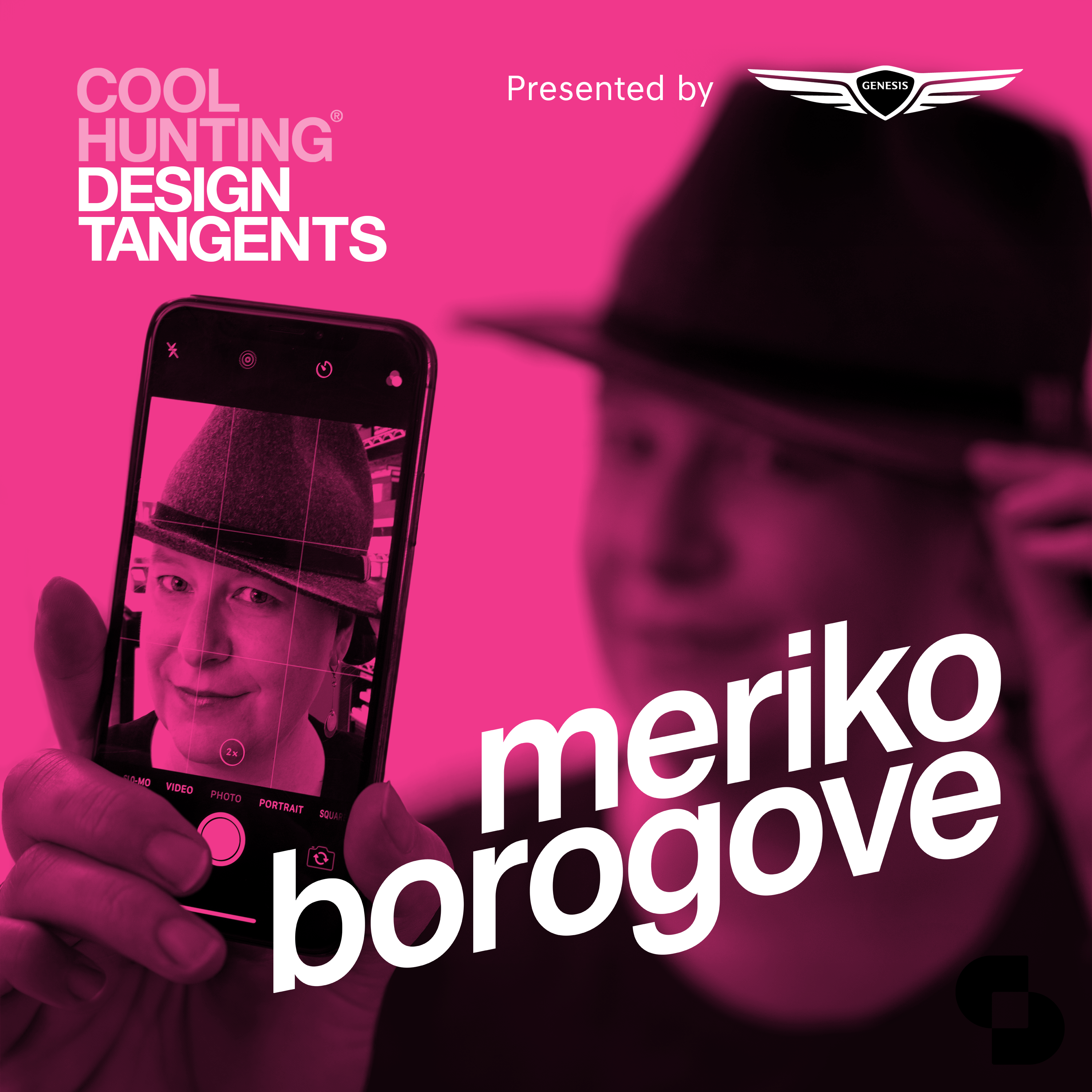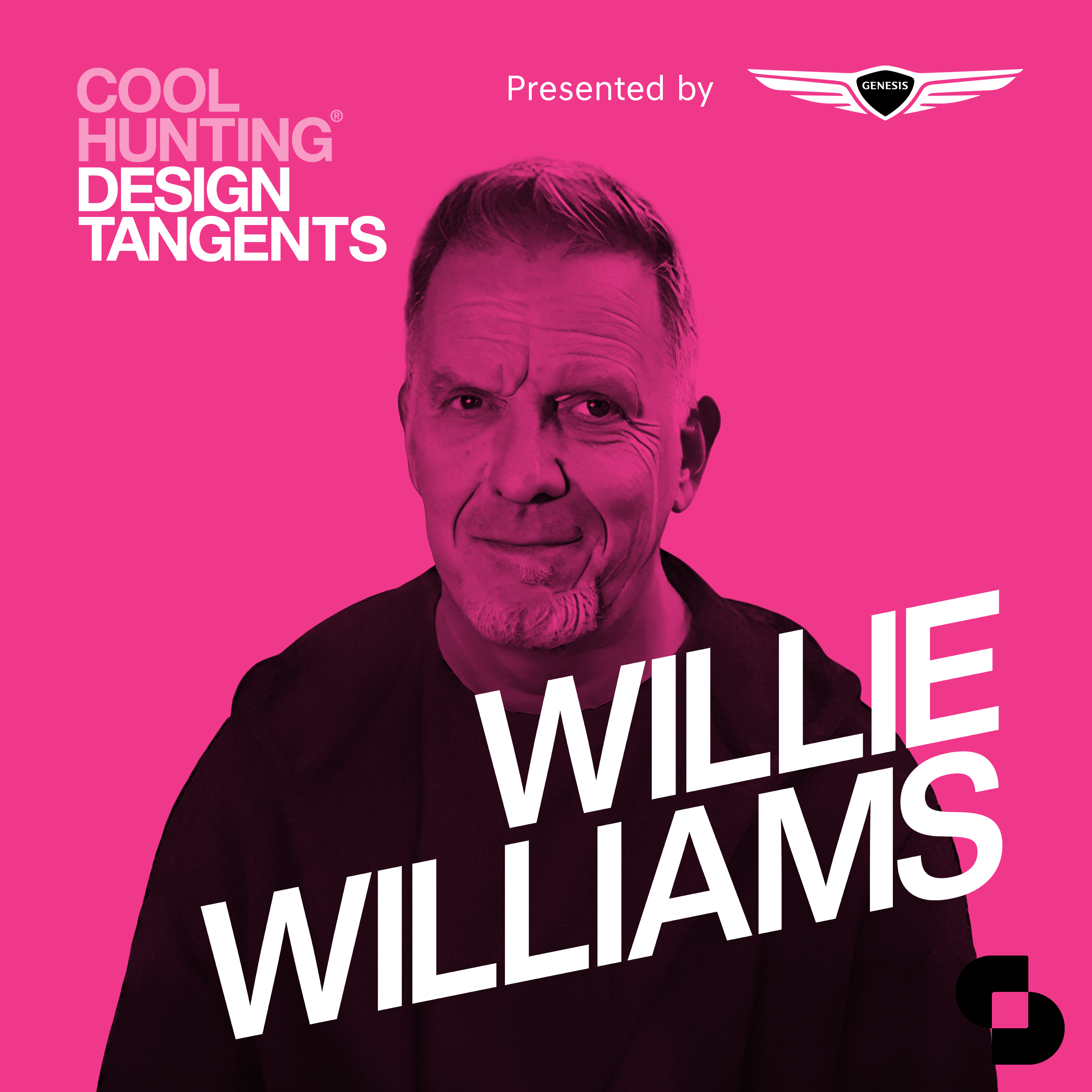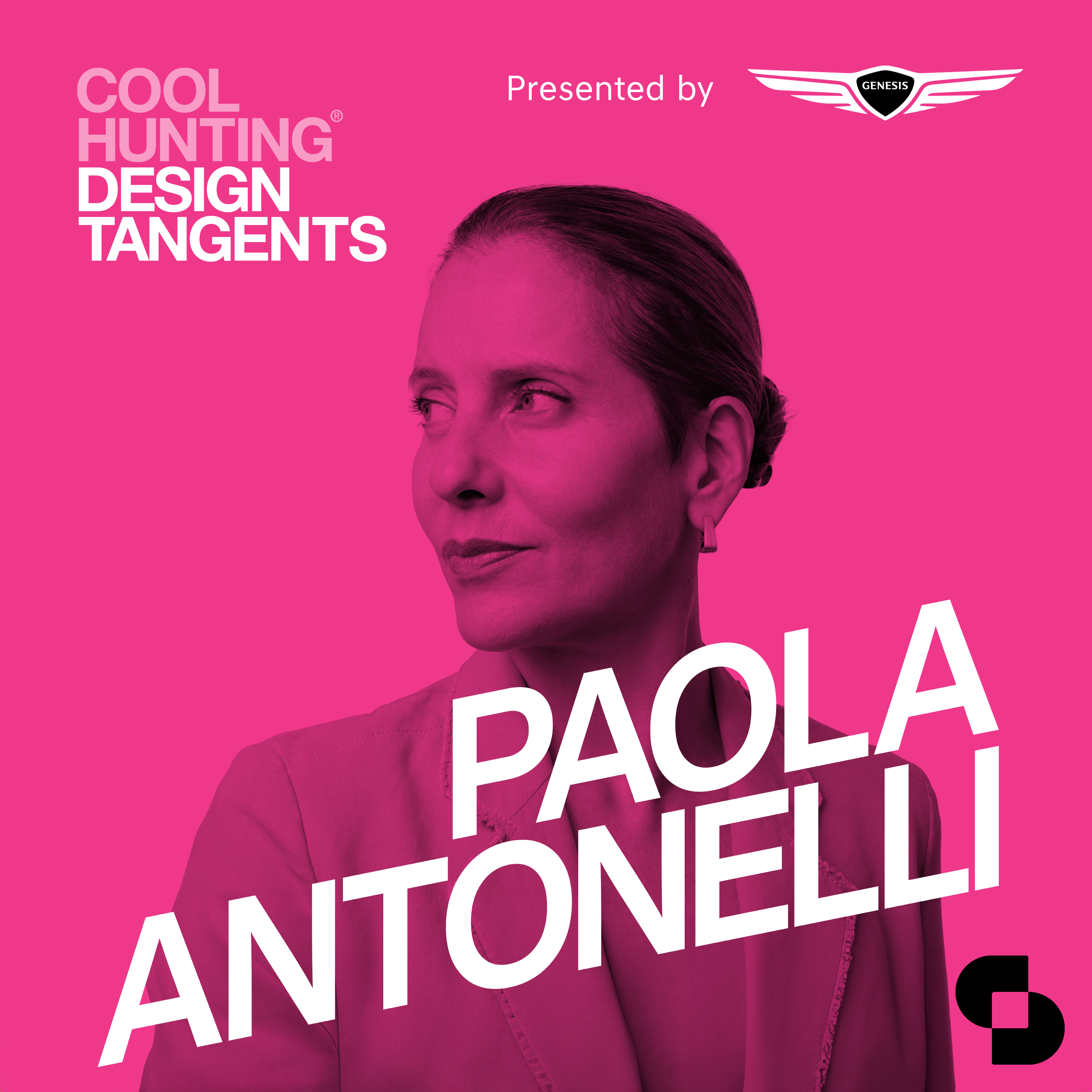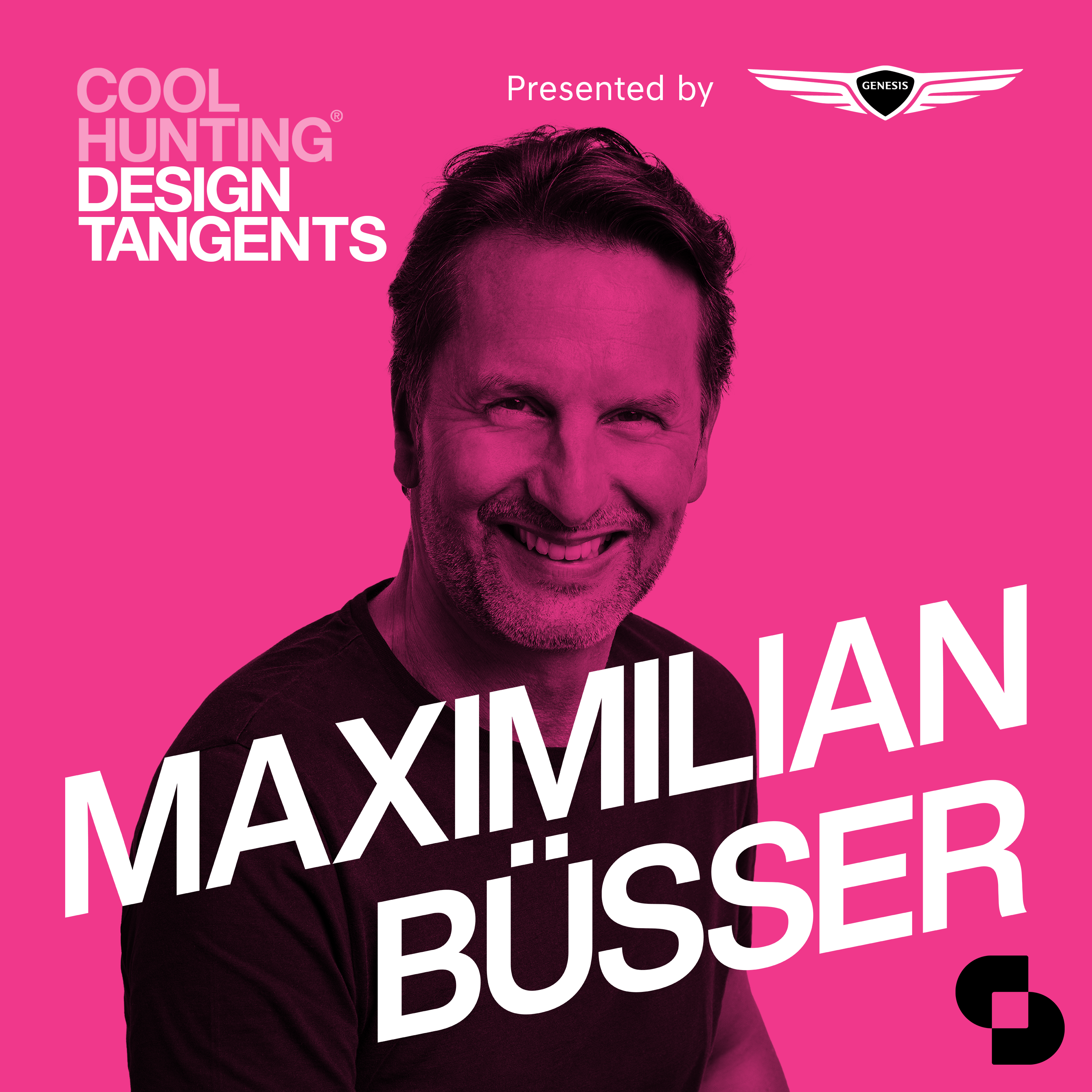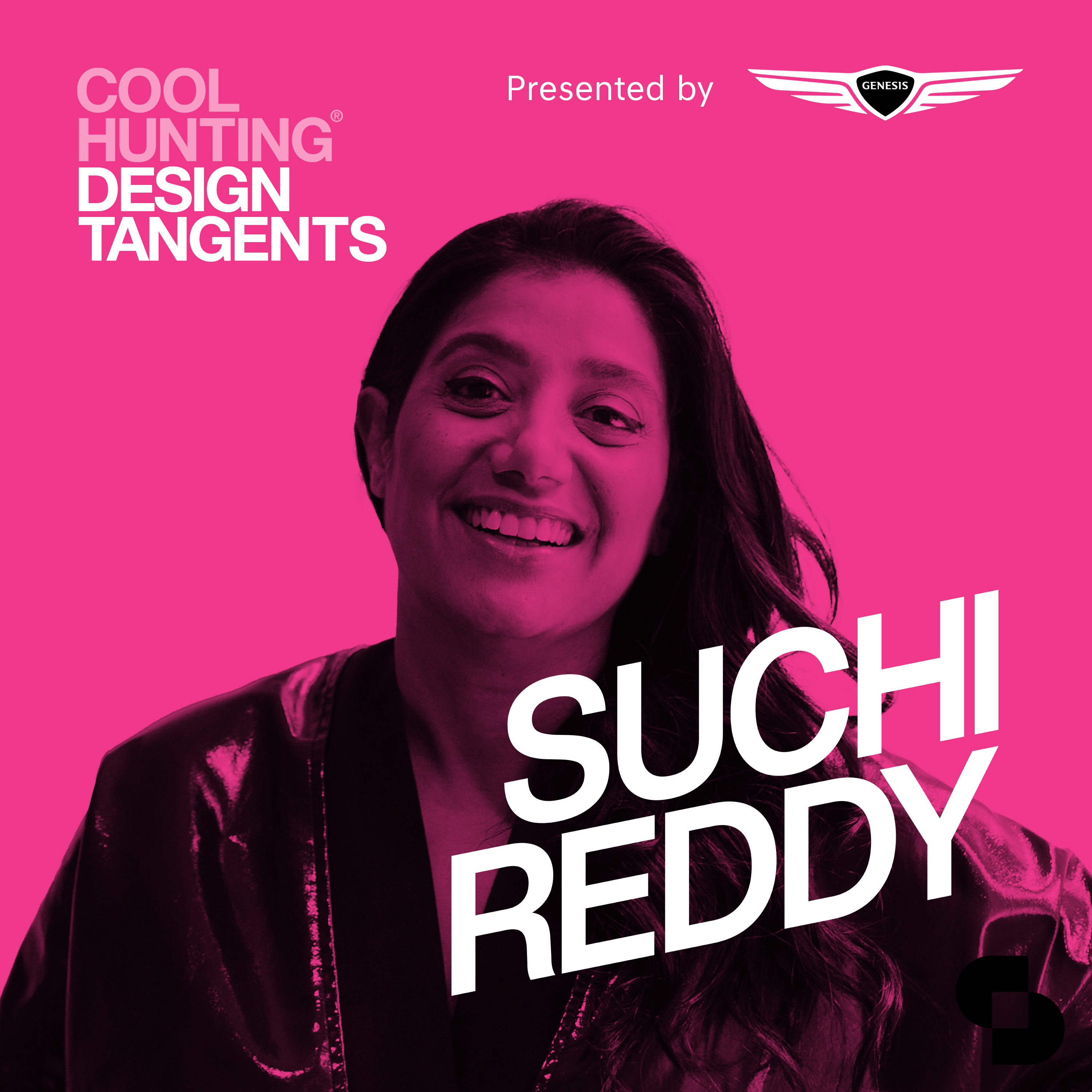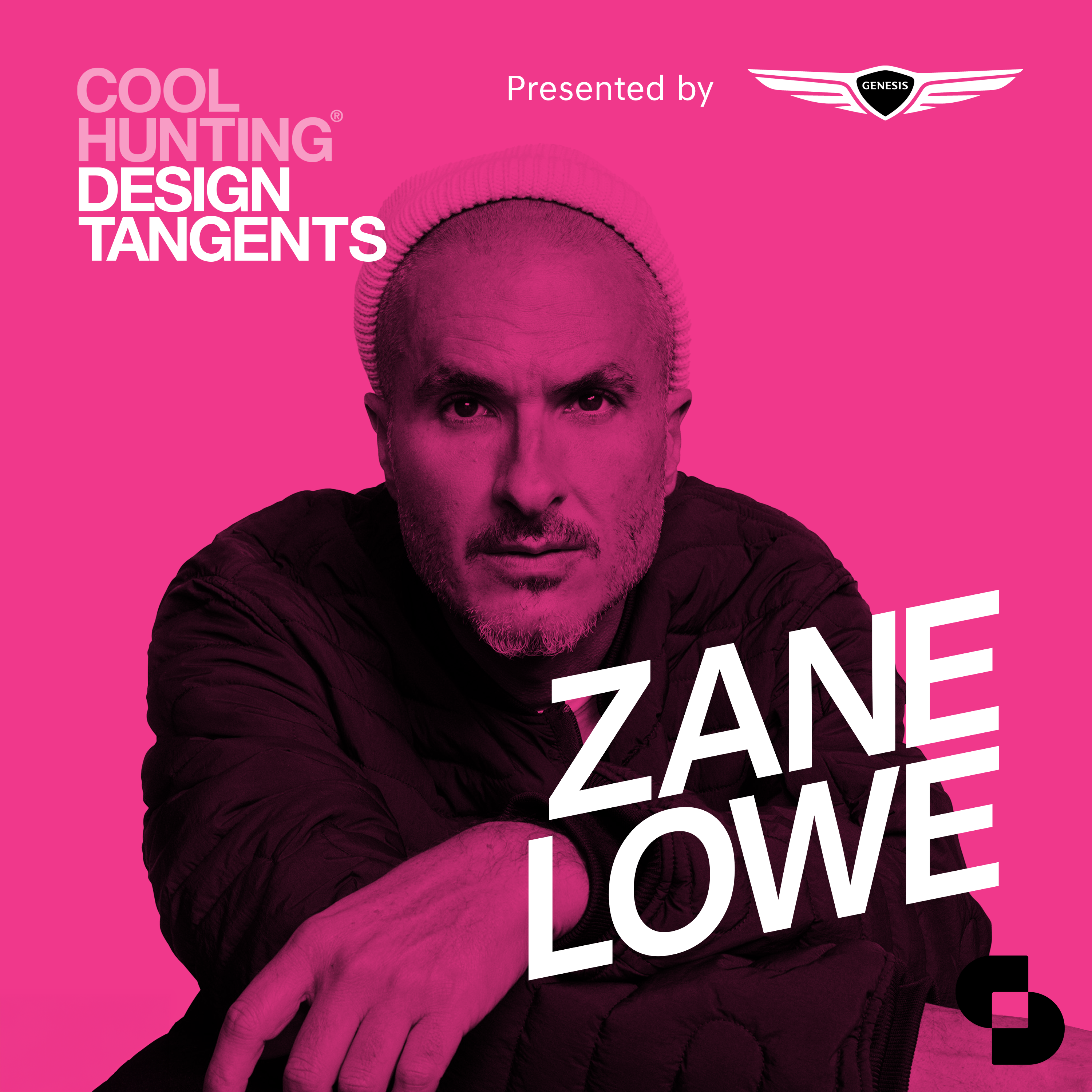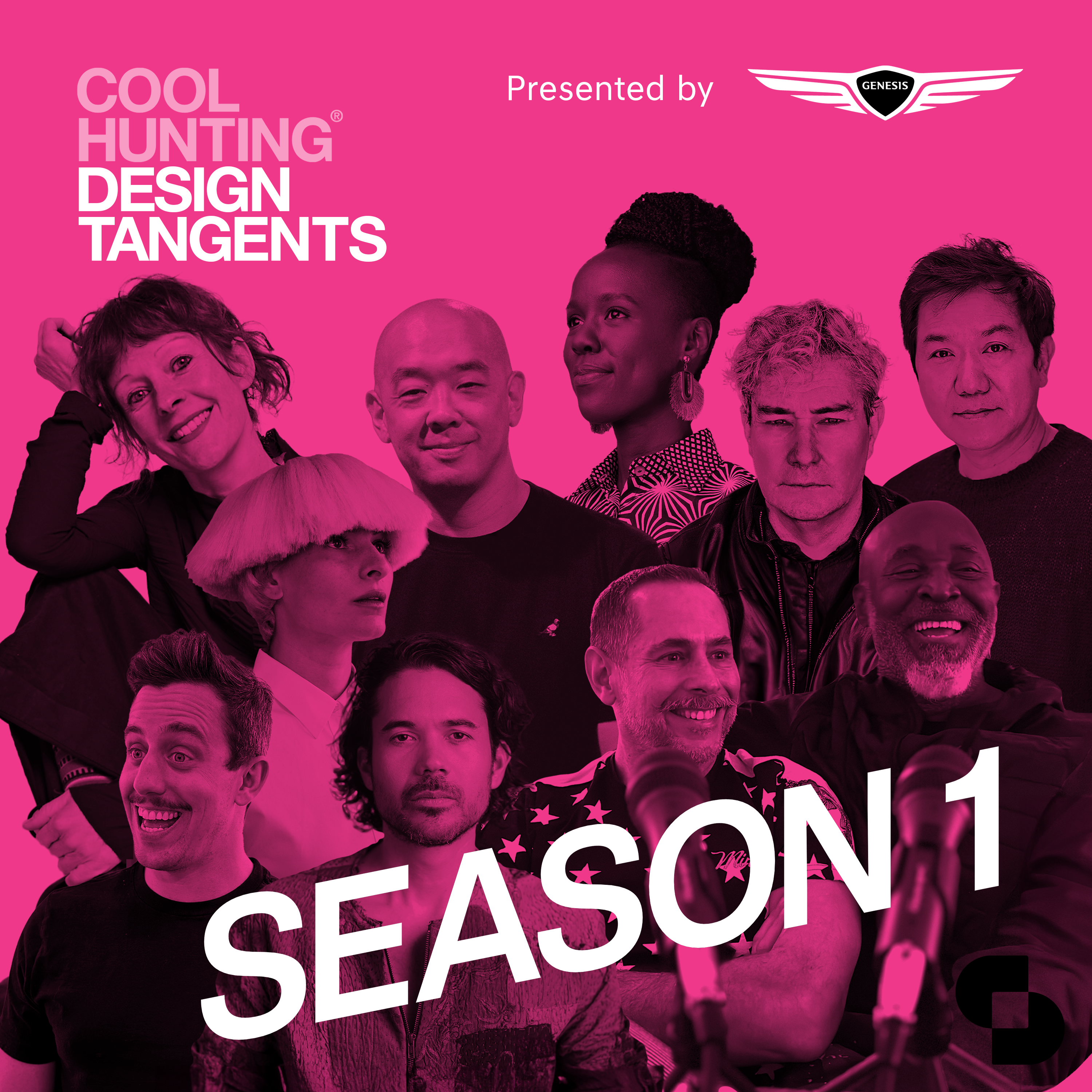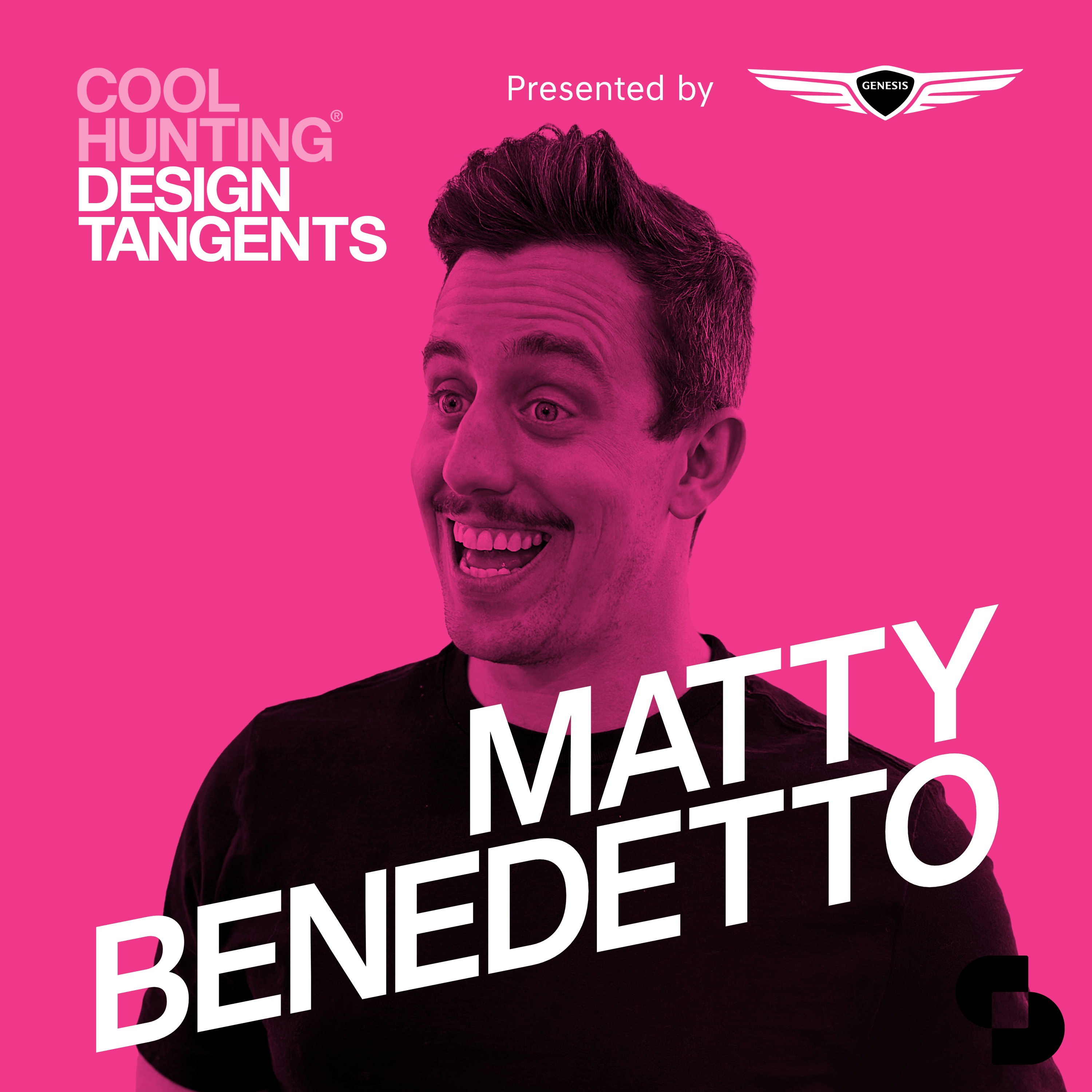Around the world photography is a male-dominated industry and in Kenya that’s an understatement. Thandiwe Muriu is the country’s first woman commercial photographer and in recent years the first to find her voice as a photographic artist. In this episode Evan and Josh sit with the Nairobi-based creative to hear how she learned the craft, found her artistic self and is unfolding and reinterpreting the visual language of Kenya for a global audience. Her energy, optimism and enthusiasm are immense and you can feel the love, power and creativity from the opening moments all the way through the conversation.
Links
Discover more shows from SURROUND at surroundpodcasts.com.
This episode of Design Tangents was produced and edited by SANDOW Design Group.
Special thanks to the podcast production team: Rob Schulte, Hannah Viti, Wize Grazette, and Samantha Sager.
Transcripts, show notes, and links for each episode of Design Tangents can be found at surroundpodcasts.com/design-tangents
Photograph courtesy of Thandiwe Muriu / Institute
Thandiwe Muriu: [00:00:00] Where to begin? Um, my name is Thandiwe Muriu, and I am a visual artist from Nairobi, Kenya. My preferred medium is photography.
Evan Orensten: Welcome to Design Tangents, a podcast that goes behind the scenes with creative changemakers to learn about their work, inspiration, challenges, and philosophies. I’m Evan Orensten.
Josh Rubin: and I’m Josh Rubin. We’re the founders of Cool Hunting. Today we’re sitting down with Thandiwe Muriu, a photographer and artist from Nairobi whose work is incredibly vibrant and engaging.
Evan Orensten: You know, Josh Thandiwe is really on the precipice and had this vision at 14 of having a certain kind of life and doing certain kind of work, and here she is. I don’t even wanna say mid-career. I think, you know, she’s just approaching this point where all these things that she’s dreamed of are coming true [00:01:00] for her.
And she’s now living this life that she envisioned for herself. Is that on the
Josh Rubin: precipice or is that over the
Evan Orensten: precipice? I, I think she’s on her journey, but she’s definitely making progress. I’m excited
Josh Rubin: for this episode because it’s an opportunity for more people to learn about her. And learn about the stories and intentions and ideas and inspirations behind her work.
I think a lot of people probably recognize the images that she makes, but maybe don’t fully understand what they’re all about.
Evan Orensten: I think that’s a really good point. Josh, you’re really fortunate to be in a studio in New York with Thandiwe. I’m dialing in from Lisbon, but not complaining about it.
Josh Rubin: I mean, Lisbon doesn’t suck, but I am very excited to be here with Thandiwe.
So let’s get started.
Evan Orensten: Thandiwe you know, I have to go back to. December, when we [00:02:00] were in Miami, uh, we were there for Art week, and as always, we’re running around from one fair to the next, and we walked into Scope and we passed Gallery 193. That’s your gallery, and I think that’s, I’m pretty sure that’s where we learned about your work several years ago.
And as we were looking at your work, There you were, and you were talking to some collectors and I was like, Josh, Josh, like Thandiwe’s here. And we were so excited about that. We had this total fanboy moment. We were kind of stalking you. Um, and we went and we talked to, you know, your, the, the gallery. And we’re like, Hey, we’re really big fans.
We’re journalists. Um, do you think Thandiwe maybe has a moment? We could just say hello? And you are so grateful and gracious to spend several minutes with us. And we just walked away going, ugh. We love your work even more, and having that ability to meet you even really briefly, just filled us with this joy and energy that honestly is, is, is something we had already taken [00:03:00] away from your work.
Like we got that feeling, that buzz, that vibe from it. And then meeting you just really reinforced it for us.
Thandiwe Muriu: Thank you. I think one of the things I remember meeting you and how excited you were about art and that as an artist, as a creative, it’s so fulfilling, I think, to meet people who are interested in the work and, and interested in knowing more about it and understanding it, and who take joy from immersing themselves in art.
Um, I mean, I can’t think of words to describe it, but for me that’s a moment where all the, the blood, sweat and tears that went into this journey, it just comes together and you’re like, oh, it was so worth it.
Josh Rubin: Let’s start by going back in time a little bit. I’d love to just hear those, those early days. Of your story of finding your way to photography.
Thandiwe Muriu: I’ve always lived and worked in Nairobi, Kenya, and when I was 14 years old, my dad introduced me to photography [00:04:00] and it is very unusual in the Kenyan context for a father to be teaching his daughters about photography. Kenya’s a very conservative society, and so in the very. Well, outside of Nairobi, Nairobi’s a bit of a special bubble, but outside of Nairobi, where it’s very traditional, a woman’s place is as a homemaker, it’s as a, um, a spouse.
You know, you need to be a good wife, a good mother, and a good, good homemaker. And my parents were always eager to make us, to raise us as strong, independent woman. My father kept telling us, you are not. We’re not raising you to make you good spouses to somebody. Um, we’re your whole in, in and of yourself.
And we are just, when you get married, if you get married, it will be to team up with somebody, not to be completed by somebody. And so he had this list of things that he wanted to teach us. Um, he said, you know, I have no sons and you are women and women are capable of everything men are. And so it was things like [00:05:00] how to change a tire, how to change a light bulb.
Um, the internet. So I remember the internet came to Kenyan like the nineties and this was probably the early two thousands. And he woke us up at midnight because that’s when it was fastest cuz it was a dial up connection. And he showed us the internet and we played a game for I think like 10 minutes.
But you know, I went to school the next day and I was like, have you been on the internet? I have. Um, and on this list was photography because he wanted us to be comfortable with technology and photography is so much tech, it’s an easy way to kind of introduce, you know, tech to somebody. And I remember the moment he put a camera in my hands, it, it was just instant chemistry.
Um, I have a very artistic family, I think, but I can’t draw. To save my life to date. I mean, stick people is kind of as far as I go in terms of my artistic abilities with my hands, but a camera just fit perfectly and it became this channel for me to begin to process my world, to begin to question the things around me, [00:06:00] to see things in a new way.
And it was love at first click, I guess.
Evan Orensten: You know it, it’s actually, I think, really fascinating because you’re sitting next to Josh, and Josh has a pretty similar story. His father is a photographer and taught him about photography. And I think, Josh, I can’t speak for you, but you probably had a similar moment when you realized that holding the camera was something really fundamental to who you are and how you express yourself.
Josh Rubin: Yeah, absolutely.It was, um, I can definitely relate to that moment of, of just feeling like there’s this tool that I can, you know, like the techy part of my brain can figure out how to use and dissect and an opportunity to make images that are. You know, whatever, uh, creative expression I want to put out there.
Yes, it was similar. My father, uh, not a, was not a professional photographer. He was, he was a hobbyist, [00:07:00] but I got to play with his camera and, um, you know, learned, also learned how to develop, film and print. This was early eighties. Not to date myself, but um, yeah. So it was, it was, it was pre-digital. Yeah.
It’s an amazing feeling when you find a tool for expression.
Thandiwe Muriu: It’s almost like you, you find your voice, um, and suddenly you just, everything you’ve been wanting to say, you find a way to just say it. That is right. It’s how I would describe it.
Josh Rubin: Yeah. So continuing with that metaphor of finding your voice, um, if the camera is your voice, where did you find your words
Thandiwe Muriu: to tell you that? I have to tell you the rest of this story. Okay. Um, Kenyans up telling stories, so there’s gonna be lots of stories in this podcast, but my dad wasn’t a professional photographer. Um, he just was a hobby as well, and so I would use his, his camera after school. Run home, do my [00:08:00] homework, and then beg my sisters to model for me.
And, um, you know, I was 14, 15 at this point. Um, no money. Very broke teenager. But my mom, who is a great problem solver, um, helped me make my first studio. And she made, she helped me, would put up bedsheets on a wall and then put one on a floor on the floor. And that kind of became my first. Seamless backdrop and because all photographers must have lighting, um, I used to take foil paper and wrap it on, you know, cardboard box and that would become a reflector.
Cause you know, I’m professional. Um, but I, I take these pictures of my sisters almost every week and I always kept going back to references in Vogue Magazine because my older sister used to collect them and I was just, Fascinated by how they would make all these elaborate setups, these worlds that I’ve just never seen before in one image.
Um, Kenya has a rich history of photojournalism, but I quickly realized I don’t want to record stories I want to [00:09:00] create and not something different. So, Began doing all these photo shoots. Um, and it was always about how creative can I get? And like every beginner, everything was so over the top. Like I look back at my first work and I’m like, oh my goodness, everything is everywhere.
Just excessive amounts of everything. Um, but to that process, I realized I do want to be a photographer professionally. So here is the next problem. There’s no photography schools in Kenya. And at the time there wasn’t, now we’re beginning to get them. Um, and so I had to teach myself photography and I would just read any magazine my dad would bring home because there’s these old magazines you can buy on the side of the road.
Um, at some point at home we got internet, and so I thought, oh, You know, I, I, I discovered YouTube and oh my goodness, you mean there’s this archive of all this amazing knowledge that I can just get at, you know, from a quick type. And so I began to learn photography.
Evan Orensten: Was this with the digital camera? Was this a film camera? Was it both?
Thandiwe Muriu: Digital. I’ve never shot film. [00:10:00] I’m, yeah, sorry.
Evan Orensten: You don’t need to apologize to that.
Thandiwe Muriu: Yeah. I came in the era that, um, digital was completely, it, like taken over the industry, but I began producing this, this work, I guess, and, and finding my voice and kind of refining how I express myself as Thandiwe images.
Um, And realizing this is something I want to do for the rest of my life. And quickly realizing maybe I want to go into advertising photography because there’s two ways you could do highly creative photography. You could do fashion photography or you could do advertising. And it was hard to make a living in fashion photography in a third world country so quickly more practically.
Advertising seemed to be the way to go. Um, but my experience in the advertising industry was always as a woman, Having to fight for my space and realizing there’s very few women in that field. I mean, globally, I think we’re still a minority, but then especially in Kenya, it was just viewed as a man’s job.
And I [00:11:00] always had to go above and beyond to prove I had a right to be there. And it took me years to kind of earn my stripes in the Kenyan photography industry. Um, but that journey raised questions in me just around.
So what happens if I want to do something that is out beyond or outside what my culture defines as a role women should have? Um, if I’m going against everything I’ve been taught, does that make me less of a woman? Does that make me less desirable? Who am I if I’m kind of pushing the boundaries of what culture has defined for me? And that’s when I began to find the words.
Evan Orensten: Did you have a mentor in the photography space or was there a woman in your life who was particularly helpful in helping you push through those barriers?
Thandiwe Muriu: I think there were many women around me, incredible women around me who have mentored me through my life.
None of them in the arts, just in different things, pushing boundaries, and so I grew up very much knowing that it is possible. [00:12:00] To break boundaries, but in the photography space, I think one of the defining moments for me was meeting this group of, um, photographers who are kind of the first generation of Kenyans shooting advertisements for Kenyans.
Because previously they would always bring in, um, talent from abroad to shoot all our campaigns. And so there was this collective of four photographers, three men and myself, and they were, they were about five years ahead of me in their journeys, and they just took me under their wing. And taught me everything.
I mean, what, what do you do in a pre-production meeting? How to make a pitch. You know, how to send good emails. These are things that, because nobody really tells you this side of, of being a creative, and yet it’s so important to get the work. Usually the creativity is not the problem. It’s everything else around the industry that you have to learn.
It would’ve taken me years to figure out those things on my own.
Josh Rubin: You talked about the very early days of working with what you could find and then thinking about. Some of the [00:13:00] images from the camouflage series, obviously the, the patterns are, you know, are striking, the women you’re photographing are incredible and there are elements of found objects.
Is that an intentional arc from the early days? Or how do, how do those objects come into the narrative of the images?
Thandiwe Muriu: So in Kenya, of course there’s a lot of poverty and one of the things around poverty is it’s always presented in this very negative way. Um, and there is, there is a difficulty to poverty that’s hard to watch and, and experience, and that is a reality that many Kenyans live with.
But I think one of the incredible things that’s come out of poverty in Kenya is creative recycling. And so it’s one of those odd characteristics we have as Kenyans, which I showed in my early days. You know, of course I need a studio, and so I’m going to look at what I have and make a studio. But Kenyans do it every day across a broad spectrum of situations because you can’t afford to buy things to solve your problems.
You look at what you haven’t [00:14:00] solved them that way. Um, and I really did want to pay homage to that in my work and kind of just show that we are more than the negative view that everybody sees. Africa is more than I. The starving children and you know, the difficulties there is beauty even in that difficulty.
And I wanted to bring that to light. Maybe it’s also a light note. You know, it’s just kind of a funny thing that we do. I, I was once sitting in traffic in Nairobi and I saw this spike go by me and, um, he had used. The little mirrors that we carry in our purses as women. You know, they kind of have a, we get these plastic ones that have a stem and a small mirror on the top.
He’d taken those and he’d attached them to his handlebars and now he had side mirrors. You know, and I mean there’s just creativity everywhere you look in daily life in Kenya. And I really wanted to capture that in my work.
Evan Orensten: And I think you’ve done a really good job of that at noticing those things and observing them and marking them, noting them.
Cause that’s all around us, everyone. To use it, but not everyone
Thandiwe Muriu: sees it. It’s amazing. As I’ve done this [00:15:00] work, I’ve stopped viewing objects as objects. You know, I’ll, I’ll see a salt shaker on a table, and I don’t see a salt shaker. I see potential for an accessory, and it’s amazing to now walk around and to see potential everywhere. It’s almost overwhelming.
Josh Rubin: When in your journey, did you start making art and when did you start thinking of yourself as an artist?
Thandiwe Muriu: Those are two very different answers. Um, I think I began thinking about myself, of thinking of myself as an artist two years ago, maybe a year ago. I always knew I wanted to be a photographer and it, it took a while to wrap my head around, you know, maybe I’m more of an artist than a photographer and kind of grieving that and transitioning into this new role or this new identity that I find myself in.
Um, but I began making art long before that. So Camo began in 2015, and what had happened is that year I had began shooting a few more advertisements and really enjoying what I was doing, and I thought I was living my [00:16:00] dream. I mean, Thandiwe was solely focused as a teenager on getting to shooting advertisements in Kenya.
That was everything I wanted in life, but something was missing. I was just not fulfilled. I was enjoying what I was doing, but I wasn’t fulfilled. And I began talking to other creators around me and just saying, you know, what’s wrong with me? I love photography, but I’m struggling. And they asked me, have you done personal work?
I said, what’s that? Because of course I was self-taught, so there’s major gaps in my learning. Um, and they said, what is the most crazy thing you can think of shooting? And just imagine you have no client and shoot that. I said, okay. I mean that sounds like fun and camera is what came out of that. And Camo was almost a way for me to fall in love with photography again, and remember the why.
Why do I pick up my camera every day? Why do I love this so much? Because I’d gotten into the routine of creation. But I’d lost the [00:17:00] heart of creation in that process. Um, and so I think that’s the moment I began making art. When I began taking pictures for myself and having projects exclusively for myself, I was still doing client work, but there was always time to just do personal work and explore and begin to ask questions like, who is Thandiwe?
What makes me me? What excites me? What defines me? And I think I began to make art that was impactful. When I began to allow more of my story to show in my images and not just make images that I thought looked nice, but made images that spoke into my experiences, spoken to my life story, because so many people can relate with themes that have happened in my life, and it began to become this place where people can come together and experience and journey with me as I discover myself.
I first shot came 2015 and that’s when I discovered like [00:18:00] the fun side, but then I picked it up again in 2018, and I think that’s when I began to create images that were a lot more personal rather than just visually fun to do.
Evan Orensten: What does a Camo work of yours look like?
Thandiwe Muriu: Oh this is one of my favorite questions.
Okay. Excited. So Camo. In Camo I work with, um, a textile known as Ankara Textile, or Dutch Wax, I think is what you’d refer to it. Here. It’s these crazy busy, almost hypnotic prints that. Are in the background. And then you have a female, usually a female subject wearing clothing that matches the background and so she’s disappearing into the background.
They’re usually very dark-skinned women because I want to celebrate our natural beauty and address some of the beauty stereotypes in Kenya. Uh, they usually have very crazy hair, so you could find some pictures. Their hair is standing up, you know, sometimes it’s super thick braids or it’s Bantu knots, really thick braids.[00:19:00]
And then they always have quirky eyewear, usually made from everyday objects. And these women don’t smile. Um, they’re not angry. They’re just very empowered looking women, occupying the space in the photograph,
Evan Orensten: never really thought about how you made those works, and I just assumed that you were. Doing stuff in the studio and then you were spending a lot of time on Photoshop and you told us that actually no it this, that it is a photograph and everything that you’re capturing is in the studio and you’re just capturing that moment through your lens.
Thandiwe Muriu: So there’s a lot of planning that goes into creating these images, but it all begins with finding the textiles, and I’m looking for textile that. Almost move when you look at them that have personality, that have very strong, bold colors. Um, because I’m African and bring on the color, we love color. And then I, I feel like each print or pattern has a personality.
And so I then design a garment that I think plays up that [00:20:00] personality. And designing the garment is very central to creating the illusion of the subject disappearing. And so I design this garment, and then I work with local tailors in Nairobi to actually make the garment. In the meantime, as they’re making the garment, I am taking all these found objects and fashioning them into eyewear.
Sometimes I have to work with a metalsmith, um, again, local talent to, to make them into pieces that you can actually wear on your face. Then on the day that I would be taking the photograph, I have found this subject who I think captures, um, Some unconventional features about African beauty or Kenyan beauty, and we’ll do the hair and that can take anywhere from an hour to three hours, just depending on the hairstyle that we’re doing.
And then I bring all these elements together and I take the image.
Evan Orensten: As you’re developing these concepts, and I assume you’re probably developing several at any given time. Do you have a, a, a model in, you know, that you’re thinking of using?
Thandiwe Muriu: I think many times the concept becomes final, and then I find [00:21:00] a woman who I think fits the mood, the feeling, the energy of the print because they, depending on the colors, depending on the pattern, the scale of the pattern, they all communicate so differently.
Some are a bit more aggressive, some are calming. So then finding the face that matches that, um, Yeah, but I’m, I’m always looking for objects. I’m always looking for subjects and I’m always looking for textiles. It’s kind of what my life feels like.
Evan Orensten: How do you recruit though? Do you hold, like casting calls are these people you meet and then you just are in the supermarket and you see someone, you’re like, Hey, I’m a photographer call me.
Thandiwe Muriu: Um, a mix of, of both. I do hold casting calls because there’s always new talent kind of coming in and, and I want to keep up to date with that. If I see a face I love, I will do the crazy photographer thing and be like, hi. I love your faith. Let me explain who I am. Can I take your picture?
Josh Rubin: You earlier mentioned that you don’t draw and you just described a process of collaborating with people who are making the [00:22:00] clothes for you and potentially people who are making the accessories.
How do you communicate what you want from them? Because you have, you have, it seems like you have a vision for what the clothes are gonna look like and what the accessories are gonna look like.
Thandiwe Muriu: I think I, I find images that are close to what I want, and then I might just go into Photoshop and like sketch, you know, the color needs to be bigger here.
Can we make this sleeves have more volume? Um, so it’s, it’s nothing, you know, we’re not drafting or anything. It’s kind of like, visually, this is what I want it to look like, and then they figure out how to construct it. When it comes to making the eyewear, I’m working with{inaudible}, we call them Artisans and is Sili, which is uh, one of the languages we speak in Kenya.
And in its literal translation, it means hot sun because they work outdoors on the side of the road under the hot Nairobi Sun with no formal training. So even if I took them technical drawings, they wouldn’t know how to translate that. And so it’s very practical and hands-on, we will, I’ll say, I want the glasses to look like this.
And they might make [00:23:00] something and then we go and put it on and say, oh, it’s too tight, or Could we make this bigger? And they’ll go and make a second piece. And we kind of, it’s a, sometimes a frustrating process, but we eventually get to what the iron needs to be.
Evan Orensten: When you look to make a new image or potentially a new series.
Where do you find that inspiration? What are you pulling from?
Thandiwe Muriu: I think several things. The textiles always come first. I will see a textile and the print just captivates me, and I just know that’s the one. And then I’ll begin to reflect on what do I want to do with you? Who are you as a, as a print, you know, what’s your personality like?
And begin to create the eyewear and everything else. But at the end when I have this final image, one of the ways I think the, the, the bow on top of everything else, the, the icing on the cake is to figure out how do I best communicate? The heart and the meaning of this image in words. So, Kenya recorded its history through [00:24:00] storytelling, through songs and through proverbs.
We were always an oral culture, and so we don’t actually have very, our oldest history is not written down, but we know it through the songs and, and the different spoken words and proverbs in our culture, and I wanted to pay homage that. So when I create the final image, I look at Proverbs and see who best fits with this image.
Um, some of my favorites, if, if you wouldn’t mind me telling them, are there’s an image that has a proverb that says A woman’s beauty is not hidden in her face. Or another one that says A diamond does not lose value due to lack of admiration. Or even another one that says when your sister does your hair, you do not need a mirror.
And so all of these are proverbs around just beauty usually. Cuz my work is, is a lot about identity and beauty or it’s about the strength of a woman, or it’s about wisdom or it’s about community because all those themes feed into our identity as individuals and just our [00:25:00] place and culture.
Evan Orensten: Have you started to hear stories of women who are inspired by your work?
Thandiwe Muriu: I think second to meeting people at art fairs and seeing them enjoy the work and interact to the work is receiving the messages from everybody. I have this wonderful community on Instagram, um, and I always get at least weekly these incredible messages from aspiring artists around the world, not just Kenya, who say, you know, I’ve inspired by your work.
I made a, I designed a textile, or I was inspired by work and I made a painting. Um, surprisingly many schools. In their early years, art programs might reference my work and the kids make art and they’ll send them to me. And it’s incredible. There’s still not many female photographers in Kenya. There’s so many stereotypes that you have to kind of work through to, to have a Kenyan photography as a woman.
But I am beginning to hear more and more stories of people saying, I am interested in this as a profession. Um, what would it look like if I considered this as my profession? And that’s encouraging. That’s progress.
Evan Orensten: You mentioned that [00:26:00] sometimes you do go up to, to people and you’re like, Hey, I’m an artist and I would love to, to photograph you.
Are you starting to have people say, I actually know who you are and I know your work?
Thandiwe Muriu: I have people who say I know the work. Yes. Um, and for me that’s exciting. I think the most exciting story of that was I was once deep in the heart of Nairobi looking for textiles in this really, really, you know, simple place with lots and lots of fabrics.
I went to the lady at the shop and I said, hi, I’m looking for textiles. And she had such a good collection of textiles. I kind of wanted to explain what I did, um, to tell her, you know, I might message you frequently to ask what you have in stock, um, and would you be okay with, you know, telling me? Um, and I pull up a picture and she’s like, oh, I’ve seen that before.
I thought, oh my goodness. This is amazing.
Evan Orensten: It’s such a great feeling to have someone recognize your work and have an awareness of your work.
Thandiwe Muriu: I think it’s also really exciting for me to see Kenyans embrace the work as well. Um, because sometimes we can be very slow to [00:27:00] do that and it’s, it’s, I would be so excited if my work becomes a rallying point for Kenyans to celebrate culture and photography and, you know, this new African, this new African identity that would be so fulfilling for me.
Evan Orensten: Can you give us some insight into kind of what the creative scene or community is like in Nairobi, at least today, and do you feel like there’s opportunities for women, for gay people? Do you feel like there’s a little bit more acceptance?
Thandiwe Muriu: I think one of the biggest things that’s happened in Nairobi is initially, art was really something you did. If you failed at life, you know, you couldn’t get a job, you had a bad degree. So, okay, fine she’s an artist, you know, you have to do something. I guess, um, that stereotype is beginning to change. And that means it, people have more courage to want to be artists. And so this great talent that before was lost to the corporate world or becoming a doctor or a lawyer or whatever else, um, is not being lost.
And so it’s an [00:28:00] amazing time to be a creative in Nairobi that there’s a, there’s a new life that is, Um, I, I call it the New Africa. I’m not sure what else to call it because it’s this, it’s like my generation’s woken up and we’ve realized we’re tired of other people telling our stories, and we are beginning to recognize our changing identity that we are still African, but we are very westernized.
And so before, I think someone like me would reject tradition. I would never wear the Ankara textiles. I would, I would not want to speak in ki Swahili or my tribal language because that’s, that’s dated. Um, but very much then coming to the place, to this work of realizing. But that is a core part of who I am.
And it doesn’t take away from the other aspects of me that are very western. It’s, it’s like this new hybrid of culture and we’re a whole generation kind of embracing that change and trying to ask questions around identity. And, and you can see it in the fashion, you can [00:29:00] see it in the music, you can see it in everywhere.
It’s just brimming to the surface. Um, so it’s a great time to be a creative. Um, there’s new fields of, of, of the creative life that are coming out. You know, people aren’t only doing the traditional filmmaking and photography. You know, you have graphic designers, you have graffiti artists. You know, people are just beginning to really explore how far can they push creativity and in, and, and the creative community in and of itself is very accepting, very welcoming of newcomers, very warm, very open to just sharing their wisdom and their collected experience with others.
Evan Orensten: You mentioned generational a few times. Do you really feel like this is something that your generation and maybe, you know, younger generations are really the ones pushing.
Thandiwe Muriu: Kenya’s not an old country, you know, it’s, we got independence, um, just slightly over 50 years ago. And, um, my grandmother, for example, her whole existence was around just tradition and culture. But over [00:30:00] time it slowly began changing with, you know, TVs came in and changed my parents’ generation. And then of course my generation had the internet.
And that just made the world so connected, it completely transformed and changed our identity. And I think there was a moment there where we didn’t quite know who we were and we wanted to reject everything we knew from our parents and grandparents, but maybe we are. The first wave we’re getting comfortable with kind of this, that we, we’ve not lost tradition, but we’ve also gained Westernization and we are just a new culture. Yeah.
Evan Orensten: Well, what seems really exciting is you’re not just pulling from all of these things that everyone is seeing, but now you’re contributing to them. You’re part of that creative force that, that new Africa that is putting stuff out there too. And I think that’s a really important marker and moment to be aware of and be proud of and be excited by.
Thandiwe Muriu: I think so again, the internet now we can [00:31:00] just put it up. We don’t need to go and try and get published or try and, you know, get into magazine. You have your Instagram and that’s your platform to just show your world and celebrate your world and question your world. Um, and I’m very excited that Instagram really literally opened doors for my career.
Evan Orensten: Well, you mentioned that you know, it was typical for foreign photographers to come to Kenya to shoot campaigns for Kenyans, and if I’m correct, one of the reasons you’re in New York is because you’re working on some projects and now you’re shooting campaigns here in New York for, I’m not sure who, but maybe Kenyans, maybe not.
Thandiwe Muriu: Maybe it’s the world for the World, which is really exciting. I get to bring my Kenyan voice to global issues and global platforms, so exciting.
Josh Rubin: As you’ve found your voice and you’ve found your words as an artist, like how do you balance art and commerce?
Thandiwe Muriu: I think it’s that I’m sought after for the work that they see, my personal work, [00:32:00] that it really is such a strong visual identity.
It became my big breakthrough. Um, before I was trying to create work that looked like what I would see in magazines, but it’s interesting the moment I let that go and began to ask myself questions around what do I enjoy? Who am I? How do I want to process and show my world? That was the secret to unlocking the door, and now I have brands that come and say, this is what we sell.
Tell us how you would see it. Um, and I get to, you know, one of the exciting things I always try and do is have as much of these campaigns as possible photographed out of Nairobi because I’m like, if you really want my style, my style is influenced by my environment. So come to Nairobi, meet the artisans that I work with.
Let us show you the Nairobi style of, you know, doing things. Um, and that is part of giving the work impact [00:33:00] and meaning as well. And it becomes not only taking pictures, but this incredible cultural exchange.
Evan Orensten: You are now having clients come to you. You are now traveling the world to create your work and to show your art. And you used to open up copies of, of Vogue and, and look at it, and that would inspire you. And now you’re creating the things that are in those kinds of magazines. Like that is a moment you have to.
You know, wake up at some point and just like, you know, go, oh my God, like I am living the life that I’ve wanted for myself.
Thandiwe Muriu: It’s exciting. It is. It’s true. Today was, um, having meetings with the New York Times and I was, I was telling, uh, my agent, you know, this is a building I would only see in movies. Kind of had a moment of taking a selfie and being like, mom, I made it.
Evan Orensten: Did you do that? Did you be like, did you take a selfie? Being like, Hey, mom.
Thandiwe Muriu: Yeah. I was like, mom, [00:34:00] look where I, I’m going inside the building. How does that feel?
Evan Orensten: Like, are you present enough to accept that emotion and digest it or, or respond to it?
Thandiwe Muriu: Honestly, I think when people ask me that question, it’s been overwhelming. It’s, it’s been. You know, I began showing, um, with my gallery about two and a half years ago, and my life has changed. I mean, I’m sitting in New York, guys, like my life has changed, um, and it’s been, I almost feel like I’m a tourist in my own life. I’m kind of just. Going along and being like, oh, okay, that’s happening now.
Okay, we’re doing this now. Um, I think it’s when I go home and I’m like, oh wait, that actually happened. And I take a lot of pictures to be like, no, I didn’t imagine it. That actually happened.
Evan Orensten: One of the way we, we found you really was your gallery, which is 193 Gallery they’re based in Paris. One of the reasons why we were drawn to that gallery in the first place was because when, [00:35:00] when we walk by their installations at fair. We’re seeing art that we don’t see in every other booth from every other gallery, and they expressed a commitment and a desire and interest to bringing talent oftentimes from Africa to these various markets around the world where people are maybe less familiar with that work.
Thandiwe Muriu: So they found me during Covid. I remember getting a message on Instagram cuz they found me on Instagram from this gallery and thinking, is this a hoax? Is this real? I mean, I had a tiny following and I was, I only posted personal work because very, very early on I knew my, my Instagram is where I control what the world sees and I don’t want it to be influenced by anyone else, cuz everywhere else can be so curated as a, an artist for you.
Kind of wanted one place where I was human and relatable and accessible. And so I saw this message and I was kind of like, is this real? I saw they represented an artist called Hasan Hajaj whose work I absolutely love. And so I kind of [00:36:00] googled and I was like, oh, it looks like they actually do represent him.
And ended up, um, cuz they wrote to me and they said, can we use some of your work? For a show we’re having called Colors of African. I was like, sure. So I said, sure, um, give them a few pieces. And it just turned into this amazing, beautiful relationship. Um, with no fine art background, I’ve had to learn a lot as I go and they have just been amazing partners in just teaching me the ropes as we kind of gone this wild ride together.
And what’s been amazing about moving into the fine arts spaces, of course I was creating the Camo series before. But moving into the art world, the question was always, why, why did you do that? And interacting with the fine art world and the gallery helped me add depth to my work and even learn more about myself because I was creating these images where I was pouring myself into them, but sometimes I didn’t actually realize how much of myself was being poured into the images.
Um, and so it’s been an interesting process in terms of getting to know myself through my own work, um, as I present it [00:37:00] to others and share it with the world.
Josh Rubin: So as you get to know yourself more through your work, I imagine that there are endless possibilities for, for the Camo series. I also wonder, What else you might be thinking about or inspired by or, or, you know, new directions that you might be investigating.
Thandiwe Muriu: I have a solo show in Paris, um, in October I think, and so I’m preparing new work for that. Because as much as I love the Camo series and you know, it is a series that is very close to my heart, of course, as a creative, as an artist, there’s many things, many questions I have to ask and want to ask. Um, I think very much still in line with a question of identity cuz there’s so much to be said there around the world.
Um, so I will be releasing new work that it’s about identity and history. One of the, the questions I’ve been asking myself is, how else do I communicate what I see in my head? What [00:38:00] other mediums can I use? And with an image, I have a split second to kind of show what I’m seeing, but maybe exploring, going into motion and saying, what happens if I have.
Five minutes. What happens if I have 30 seconds? How much more can I say? How much more can I push? What I see in my head when I look at these prints I’ve had
Josh Rubin: As a, as a starer, I’ve had a a similar question about, okay, how do I make film? And we, we have produced indirect, plenty of documentaries, um, over the years.
Not cool hunting, but I’ve never shot them cuz I see the world in still images. And I’ve been forcing myself to make videos on my iPhone more and more to try to make that shift. But it’s a challenge.
Thandiwe Muriu: It’s a different way of thinking for sure, because yeah, I see the world in short moments, beautiful light. To see it in one continuous movement, it’s something you have to train your eye to do.
Evan Orensten: Obviously, you’re [00:39:00] no longer. Making lights out of cardboard boxes and tinfoil. Are you like into the techie side of photography or videography?
Thandiwe Muriu: Initially when I began, I thought it was equipment that made the photographer, which I think is a common misconception.
The more I have gone into personal work. Um, it is I that gives the I develop, the style you develop is what gives the work strength. And so I have become less and less technical. And I pick my gear based on this is what I need to do, what gets me there, you know, most efficiently or with the, within the parameters that I need to use.
Um, But less and less techy about the gear.
Josh Rubin: Going back to when you first held a camera and started taking pictures, do you remember the first picture and then do you remember the first picture you were happy with?
Thandiwe Muriu: Oh, good question. The first picture, [00:40:00] Um, I think was of a flower because I think every person beginning in photography, you begin with what’s most accessible to you, which is usually the outdoors.
And so I did a lot of clouds, teardrops, and flowers. I still have some of those pictures. They are terrible. Um, the first picture that I actually liked was a picture of a red rose with fresh dewdrops on it. And maybe that was an early indication of. The Thandiwe was to come because it was color. But I remember kind of being so mesmerized by just the circles, um, that the petals of the roses made and just something very, almost serene about just that print, that pattern that nature was making.
Evan Orensten: You talked about bringing so many of your ideas to life. Is there a series? Is there something that you have are thinking about that you want to bring to life that. Maybe you haven’t started yet or you’re just starting to work
Thandiwe Muriu: on. [00:41:00] I think the curse of being a creative is that you have so many ideas you want to work on. It is not possible time-wise to do all of them. Um, but I seeing my work in print more and more. I love large scale prints and so I would want to work on a series where I am. Covering complete spaces and prints and just making these huge print landscapes.
Evan Orensten: I’d love to see one of those.
Thandiwe Muriu: Yeah. In my head it looks amazing.
Josh Rubin: Well, I, I mean, I can imagine those, those print landscapes and then all the people in them.
Thandiwe Muriu: like, I mean, just imagine like a whole, like junction at a street just covered in print. The people walking covered in print. I mean, wouldn’t that be something? Mm,
Evan Orensten: yes. Thandiwe, Thank you so much for taking the time out of your very busy trip to New York to sit down with us and share your voice and your work and your really incredibly strong energy and spirit.
Uh, we’re [00:42:00] very grateful and looking forward to seeing you at your show in Paris in October.
Josh Rubin: And for our listeners who might not have seen your work, Before, we’ll of course put links in the show notes, but where is the best place for them to look? Would it be your Instagram, and what would that handle be?
Yeah,
Thandiwe Muriu: if you wanna hear Thandiwe version of her work, Instagram’s a place. Um, I love receiving messages from everybody and comments I read each and every one, so that would be Thandiwe with an underscore, and then Muriu, so just my names. Um, or you could read more about the work and, and just kind of get a artist statement on my website, which is Thandiwemuriu.com.
T H A N D I W e, and then my second name, M u R I U.
Josh Rubin: I’m really excited for our audience to hear more of your story.[00:43:00]
Evan Orensten: Thank you for listening to this episode of Design Tangents with Cool Hunting. Make sure you hit the follow button wherever you listen to podcasts so you don’t miss an episode.
Josh Rubin: Designs tangents is proud to be part of the SURROUND podcast network. You can check out many other amazing design and architecture related [email protected].
That’s podcasts. With an S,
Evan Orensten: we’re psyched to partner with the studio by SANDOW to make our show possible. Huge thank you to our production team, Samantha Sager, Rob Schulte, Hannah Viti, and Wize Gazette. Our theme music is by the amazing Matthew Dear.
Josh Rubin: and thank you to Genesis for presenting this debut season.
Stay tuned for the next episode of Design Tangents and learn more about us at coolhunting.com.[00:44:00]

